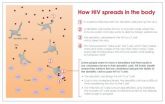(Press-News.org) There is new, more definitive evidence implicating camels in the ongoing outbreak of Middle East Respiratory Syndrome, or MERS. Scientists at the Center for Infection and Immunity at Columbia University's Mailman School of Public Health, King Saud University, and EcoHealth Alliance extracted a complete, live, infectious sample of MERS coronavirus from two camels in Saudi Arabia. The sample matched MERS coronavirus (MERS-CoV) found in humans, indicating that the virus in camels is capable of infecting humans and that camels are a likely source of the outbreak.
Results appear online in the journal mBio.
The researchers examined nasal samples collected during a countrywide survey of dromedary camels and selected samples from two animals with the highest viral load. They cultured and obtained complete genomic sequence from both animals as well as virus in nasal samples from several other camels.
The mathematical means of all genetic sequences (the consensus genomic sequences) were consistent with viruses found in human cases; however, samples from camels contained more than one virus genotype. Over a period of 48 hours of culture in primate cells, the genomic variation of viruses narrowed, mirroring the lower sequence diversity reported in MERS-CoV found in humans.
"The finding of infectious virus strengthens the argument that dromedary camels are reservoirs for MERS-CoV," says first author Thomas Briese, PhD, associate director of the Center for Infection and Immunity and associate professor of Epidemiology at the Mailman School. "The narrow range of MERS viruses in humans and a very broad range in camels may explain in part the why human disease is uncommon: because only a few genotypes are capable of cross species transmission," adds Dr. Briese.
"Given these new data, we are now investigating potential routes for human infection through exposure to camel milk or meat products," says co-author Abdulaziz N. Alagaili, PhD, director of the Mammals Research Chair at King Saud University. "This report builds on work published earlier this year when our team found that three-quarters of camels in Saudi Arabia carry MERS virus."
To date, at least 300 people have been infected with the virus that causes MERS and approximately 100 have died since the first documented case in Saudi Arabia in September 2012. Of these, more than 60—about one-fourth of the global total since MERS was identified—have been reported in the past month. Most cases have been in Saudi Arabia, with lower numbers in Jordan, Qatar, Tunisia, and the United Arab Emirates. France, Germany, Italy, and the United Kingdom, and more recently Malaysia and the Philippines, have also reported cases related to travel to the Middle East. While human-to-human transmission has occurred, the source of the disease in most cases has remained a mystery.
"Although there is no evidence that MERS-CoV is becoming more transmissible, the recent increase in reported cases is a cause for concern," says senior author W. Ian Lipkin, MD, director of the Center for Infection and Immunity and the John Snow Professor of Epidemiology at the Mailman School. "It is essential that investigators commit to data and sample sharing so that this potential threat to global health is addressed by the entire biomedical research community."
INFORMATION:
W. Ian Lipkin, MD, director of the Center for Infection and Immunity (CII) and the John Snow Professor of Epidemiology at the Mailman School, is the study's senior author. Additional co-authors include Nischay Mishra and Komal Jain at CII; Iyad S.Zalmout and Osama B. Mohammed at KSU Mammals Research Chair; Omar J. Jabado at the Icahn Medical Institute; and William B. Karesh and Peter Daszak at EcoHealth Alliance.
The KSU Mammals Research Chair is supported by the Deanship of Scientific Research, King Saud University. Work in the Center for Infection and Immunity and EcoHealth Alliance is supported by awards from the National Institutes of Health (AI057158) and the United States Agency for International Development's Emerging Pandemic Threat Program, PREDICT project, under terms of Cooperative Agreement Number GHN-A-OO-09-00010-00.
Live virus implicates camels in MERS outbreak
2014-04-29
ELSE PRESS RELEASES FROM THIS DATE:
Low cholesterol in immune cells tied to slow progression of HIV
2014-04-29
PITTSBURGH, April 29, 2014 – People infected with HIV whose immune cells have low cholesterol levels experience much slower disease progression, even without medication, according to University of Pittsburgh Graduate School of Public Health research that could lead to new strategies to control infection.
The Pitt Public Health researchers found that low cholesterol in certain cells, which is likely an inherited trait, affects the ability of the body to transmit the virus to other cells. The discovery, funded by the National Institutes of Health (NIH), is featured in today's ...
Low cholesterol in immune cells slows HIV progression
2014-04-29
Scientists at the University of Pittsburgh have identified why some HIV-infected people experience much slower disease progression, even without medication, and it has to do with cholesterol levels in specific immune cells. They report their findings in mBio®, the online open-access journal of the American Society for Microbiology.
"A fascinating aspect of the AIDS epidemic is that a small percentage of HIV-1-infected persons, termed nonprogressors or controllers, maintain a relatively normal number of CD4 T cells (Th cells) and low viral load for many years without ...
When harm done can never be balanced: Vicarious revenge and the death of Osama bin Laden
2014-04-29
April 29, 2014 – Friday will mark the third anniversary of Osama bin Laden's assassination, a day when U.S. President Barack Obama famously stated "Justice has been done." But has it? A new study from a team of social psychology researchers led by Mario Gollwitzer of Philipps University of Marburg, has questioned whether this instance of vicarious revenge led to feelings of satisfaction and reestablished justice within the American public, including whether bin Laden's assassination ignited craving for more revenge.
Justice achieved
Vicarious revenge, where the need ...
Snobby staff can boost luxury retail sales
2014-04-29
When it comes to luxury brands, the ruder the sales staff the better the sales, according to new research from the University of British Columbia's Sauder School of Business.
The forthcoming Journal of Consumer Research study reveals that consumers who get the brush-off at a high-end retailer can become more willing to purchase and wear pricey togs.
"It appears that snobbiness might actually be a qualification worth considering for luxury brands like Louis Vuitton or Gucci," says Sauder Marketing Professor Darren Dahl. "Our research indicates they can end up having ...
NIH center sets new goals for global health research and training
2014-04-29
Global health research and training efforts should focus on combatting the growing epidemic of noncommunicable diseases, better incorporating information technology into research and training, and more effectively converting scientific discoveries into practice in low-resource settings, according to the Fogarty International Center's new strategic plan, released today. Fogarty is the component of the National Institutes of Health solely focused on supporting global health research and training, and coordinating international research partnerships across the agency.
As ...
Study of stem cell trials links discrepancies in data with reported success of treatment
2014-04-29
New research looking at the success of clinical trials of stem cell therapy shows that trials appear to be more successful in studies where there are more discrepancies in the trial data.
Researchers from Imperial College London conducted a meta-analysis of 49 randomised controlled trials of bone marrow stem cell therapy for heart disease. The study, published today in the British Medical Journal, identified and listed over 600 discrepancies within the trial reports.
Discrepancies were defined as two (or more) reported facts that could not both be accurate because ...
Annals of Internal Medicine tip sheet for April 29, 2014
2014-04-29
1. Viral hepatitis remains a major health concern in the U.S.
Experts comment on HHS 2014-2016 Viral Hepatitis Action Plan
Untreated chronic viral hepatitis affects between 3.5 and 5.3 million Americans and continues to fuel rising incidences of progressive liver disease, liver failure, and liver cancer. In 2011, the U.S. Department of Health and Human Services (HHS) unveiled the nation's first coordinated national approach to tackling viral hepatitis with the Action Plan for the Prevention, Care and Treatment of Viral Hepatitis in the United States. Priorities set ...
AAN issues findings on use of medical marijuana in treatment of certain brain diseases
2014-04-28
MINNEAPOLIS – A review by the American Academy of Neurology of available scientific research on the use of medical marijuana in brain diseases finds certain forms of medical marijuana can help treat some symptoms of multiple sclerosis (MS), but do not appear to be helpful in treating drug-induced (levodopa) movements in Parkinson's disease. Not enough evidence was found to show if medical marijuana is helpful in treating motor problems in Huntington's disease, tics in Tourette syndrome, cervical dystonia and seizures in epilepsy. The review is published in the April 29, ...
Surveys indicate decline in children's exposure to violence
2014-04-28
Children's exposure to violence and crime declined between 2003 and 2011.
Rates of violent crime have declined in the United States since the 1990s. The authors previously completed three national telephone surveys of children and caregivers on children's exposure to violence in 2003, 2008 and 2011.
In this study, the authors analyzed the surveys for changes over time from 2003 to 2011.
The authors examined 50 specific trends in exposures to violence and crime and found 27 significant declines and no significant increases between 2003 and 2011. There were declines ...
High doses of antidepressants appear to increase risk of self-harm in children young adult
2014-04-28
Bottom Line: Children and young adults who start antidepressant therapy at high doses, rather than the "modal" [average or typical] prescribed doses, appear to be at greater risk for suicidal behavior during the first 90 days of treatment.
Author: Matthew Miller, M.D., Sc.D., of the Harvard School of Public Health, Boston, and colleagues.
Background: A previous meta-analysis by the U.S. Food and Drug Administration (FDA) of antidepressant trials suggested that children who received antidepressants had twice the rate of suicidal ideation and behavior than children who ...

